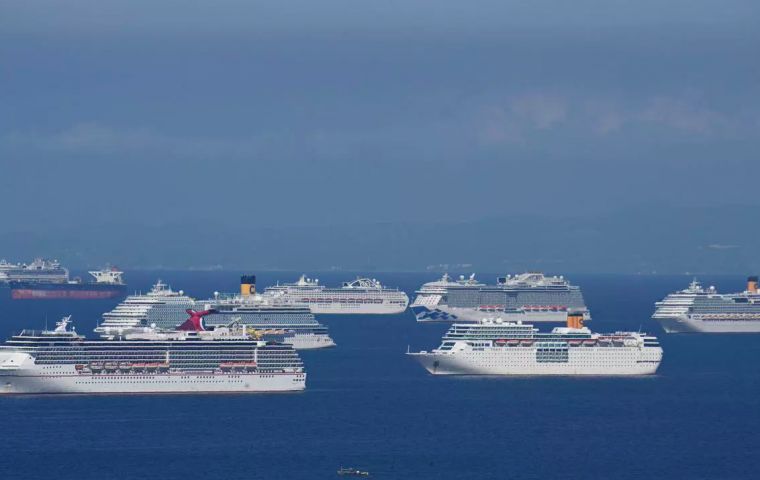MercoPress. South Atlantic News Agency
World consensus to protect seafarers as “key workers” and help repatriation of 200.000 stranded at sea
 Measures supported by ILO, other UN agencies and international organizations, enable seafarers to be repatriated and move more freely during the pandemic.
Measures supported by ILO, other UN agencies and international organizations, enable seafarers to be repatriated and move more freely during the pandemic.  “I call on all member States to support the implementation of this joint statement,” said ILO Director-General, Guy Ryder.
“I call on all member States to support the implementation of this joint statement,” said ILO Director-General, Guy Ryder. The International Labour Organization has expressed support for new international measures to protect the rights of seafarers, stranded at sea because of the COVID-19 crisis .
It welcomed a joint statement signed by more than a dozen countries that gives seafarers enhanced rights as key workers. The new measures, also supported by other UN agencies and international organizations, enable seafarers to be repatriated and move more freely during the pandemic.
“I welcome the coordinated efforts undertaken by social partners and the international community to respond to the crisis created by the COVID-19 pandemic in the maritime sector, and call on all member States to support the implementation of this joint statement,” said ILO Director-General, Guy Ryder.
The joint statement was signed during a virtual International Maritime Summit, hosted by the United Kingdom government, which discussed the global crew change crisis that has left more than 200,000 seafarers stranded at sea due to the COVID-19 pandemic.
Some have been confined to vessels for months because of restrictions on international travel and measures to contain the virus.
The agreement will lead to the opening of foreign borders for seafarers and to an increase in the number of commercial flights, which will speed up repatriation efforts.
Seafarers have been among the hardest hit from the fall-out of the pandemic, said Corinne Vargha, Director of the ILO’s International Labour Standards Department.
While delivering a key service to society, they face safety and health risks, and, increasingly now, physical and mental exhaustion, due to their inability to return home or to join their ships because of measures taken to stop the spread of the virus.
The ILO has urged governments to recognize seafarers as ‘key workers’ who ensure the flow of trade and the movement of vital medical supplies, safety equipment, food and other critical goods during the pandemic.
Using the guidance of the Maritime Labour Convention, 2006 , the ILO has been working with its social partners – governments, workers’ and employers’ organizations – as well as a number of international bodies to solve the issue. These include the International Transport Workers’ Federation (ITF), International Chamber of Shipping (ICS), International Maritime Organization (IMO), World Health Organization (WHO), International Civil Aviation Organization (ICAO), European Union and various governments.
“The ILO expresses its support for the joint statement, which provides useful, practical and timely commitments to actions that will help solve this pressing problem and expedite crew changes,” Vargha said. “We are committed to providing support to our constituents in addressing the issue of crew change, including through the implementation of this initiative.” (ILO).-




Top Comments
Disclaimer & comment rulesCommenting for this story is now closed.
If you have a Facebook account, become a fan and comment on our Facebook Page!